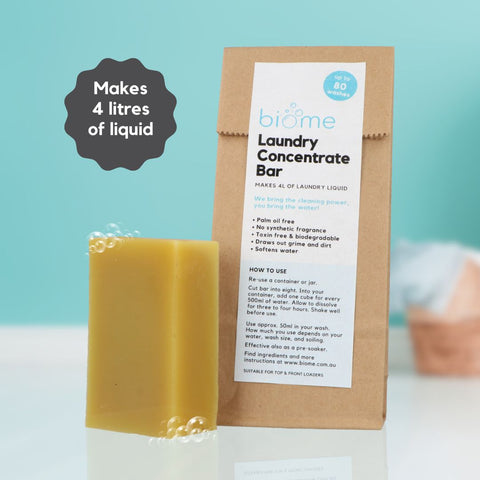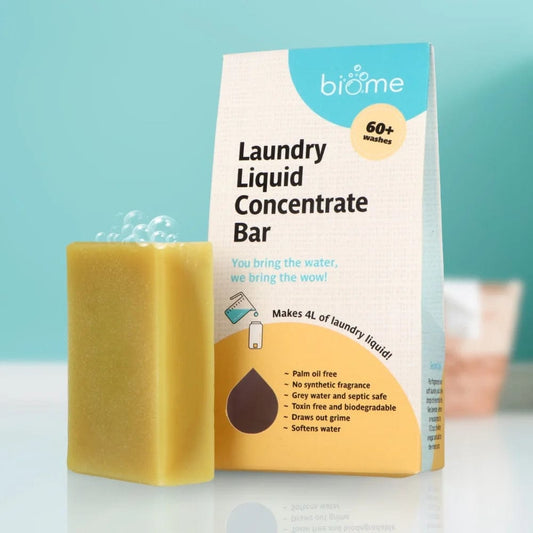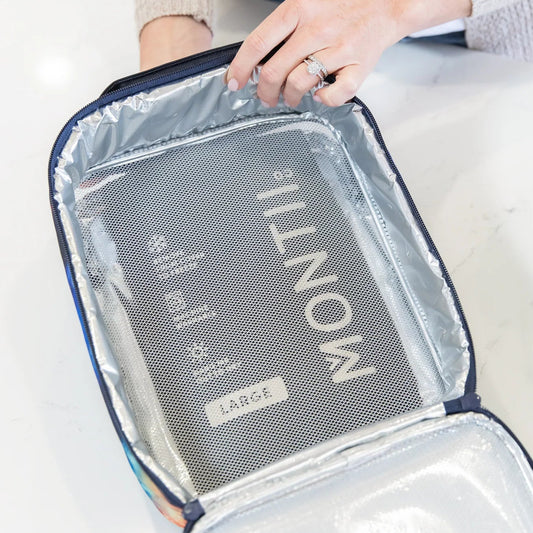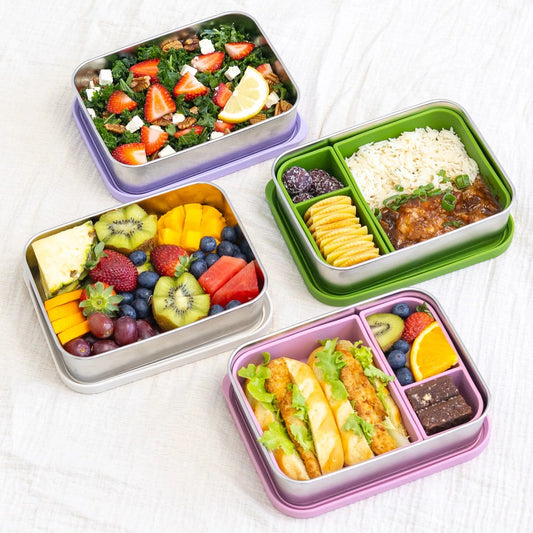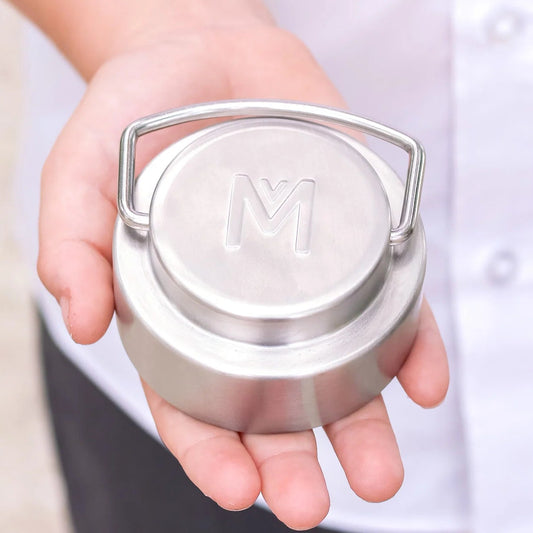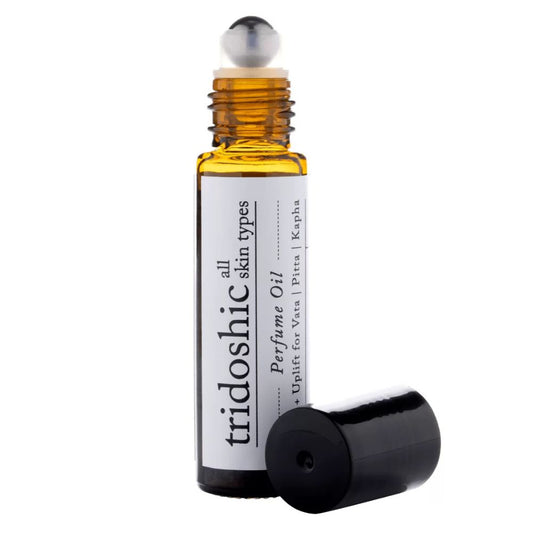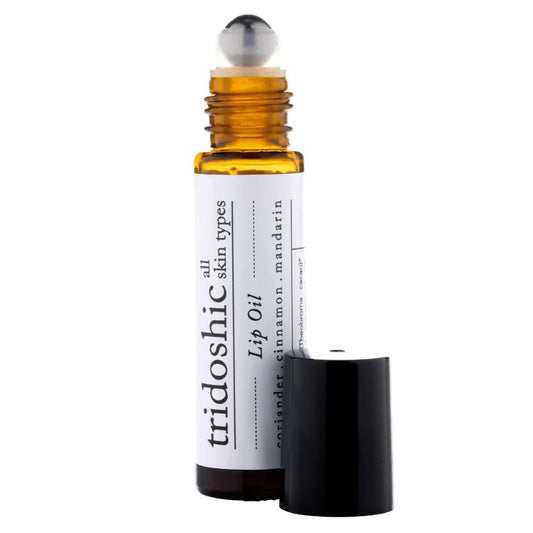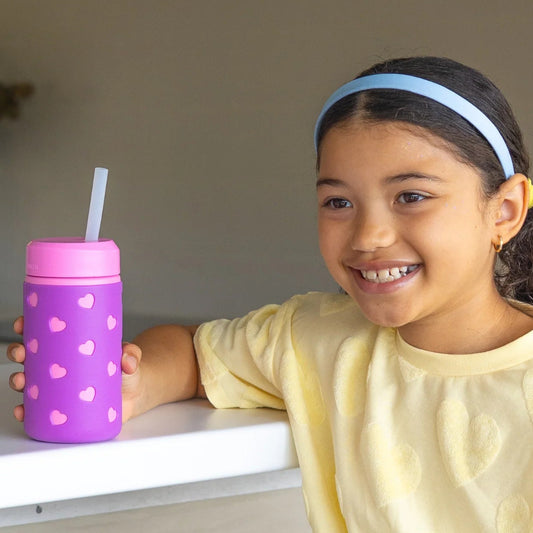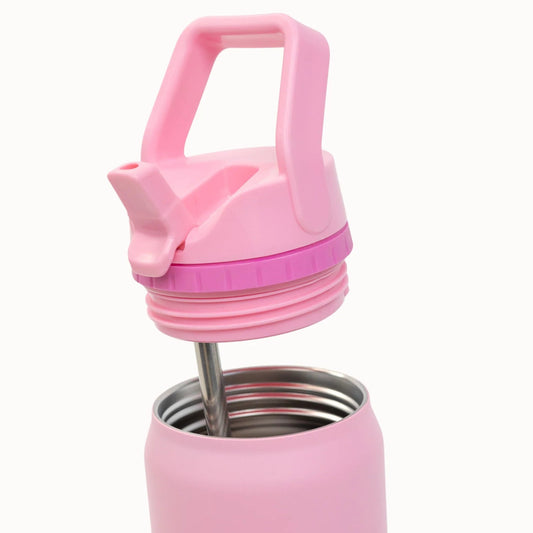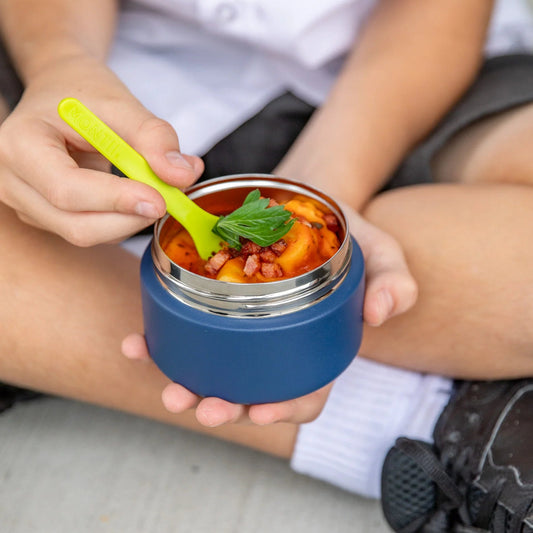Claims that laundry and dishwasher sheets are "eco-friendly" are green washing, if the brand is not disclosing that they are single-use plastic. Massive amounts of dissolved plastic are being washed into our waterways and oceans, and here I explain what's going on. - By Tracey Bailey, Biome founder.
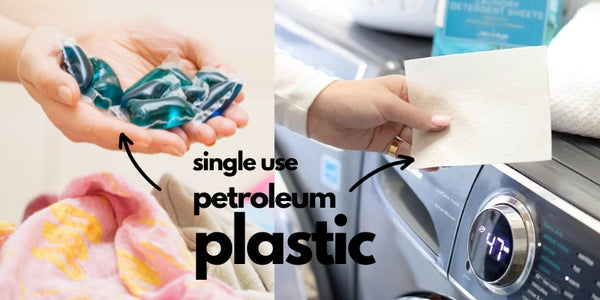
The use of thin, dissolvable laundry and dishwasher sheets is sky-rocketing, particularly fuelled by claims that they are an eco-friendly solution. From niche to mainstream brands, everyone's getting on the trend because they seem to have hit the mark with consumers who want to do the right thing. But, this is a huge concern because these sheets can pollute the environment.
We know that there are no "squeaky-clean", perfectly eco products—everything has an impact. Detergent sheets have some green credentials, such as reducing plastic bottles for laundry liquids. But, brands are greenwashing the facts to give the impression they are more environmentally beneficial than they really are.
The Australian Competition and Consumer Commission is cracking down on greenwashing, which it defines as "where a business uses any claim, or omits key information, that makes a product seem better or less harmful for the environment than it really is."
Number one, brands are not disclosing that the sheets are made from petroleum plastic. In fact, some brands even state they are made from "plants" or "natural vegetable oil film", which they are not.
Since we first published this in November 2023, the media is catching on.
> The Washington Post "How plastic hides in supposedly eco friendly laundry products"
> Bloomberg "New York City is considering a laundry pods and sheets crackdown."
Detergent sheets made from petroleum-based PVA
Laundry sheets and dishwasher sheets can be space-saving, reduce plastic bottles, and are touted as being made from harmless substances that biodegrade.
But, the sheet is comprised of Polyvinyl Alcohol (PVA), which is a synthetic plastic resin made from fossil fuels (i.e. ethylene gas, a major product of the US oil fracking industry). It is not plant-based. It is in fact the same plastic that laundry and dishwasher pods are made from.
PVA requires fossil fuels and energy to produce (a polluting, greenhouse gas emitting process to start with). Essentially, we extract ethylene gas using fracking to make sheets that dissolve tonnes of synthetic PVA into the environment. It does not make sense.
Although it is claimed that PVA biodegrades, what it primarily does is dissolve. However, just because it has dissolved into water does not mean that it no longer exists! It is still plastic dispersed into the water—just like when salt dissolves into water, you can't see it any longer, but the water tastes salty. (1)
And PVA rarely fully biodegrades—even if the sheet carries a biodegradability certification, it requires very specific conditions to do so.
After the PVA dissolves in our washing machines, it flows through wastewater treatment, and ultimately back into our environment.
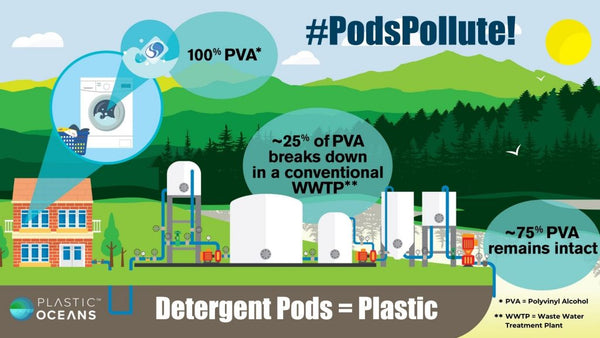
Laundry sheets are made from the same plastic as pods.
Most of the PVA in wastewater goes untreated, accounting for 8,000 tons of PVA per year entering the environment in the USA. Studies have found that 75% of PVA persists in our waterways and soil. (2) When it ends up in the soil, it can easily get into the food we consume and our stomachs.
What is PVA
Polyvinyl Alcohol is a synthetic plastic polymer found in many of our everyday products.
It is the same as the thin plastic already used for laundry and dishwasher pods. In the U.S. alone, over 20 BILLION PVA wrapped dishwasher and laundry pods are used every year.
Because PVA is water soluble, it is also used in hundreds of personal care, household, and medical products. It is even used as a thickener and moisture-barrier coating in food...gulp.
- Personal care - shampoo and conditioner, body wash,
- Food - breakfast cereal, soup, processed meats, yoghurt, ice cream, drink powders, grease-proof paper
- Medical - capsule/tablet casing, blood bags, contact lens lubricant, eye drops
- Industrial - water soluble film for food packaging, disposable coffee cups, adhesives, fabric coating, print toners
Here is a not-so-honest, but common spin on PVA by the Honest company.
They make no mention that it is made from petroleum, nor the word plastic. In fact, they go as far as to use tricky wording to make you think it starts life as ethylene in fruit! (3).
The only plants PVA is made are from million year old fossilised plants now known as fossil fuel! 🙄
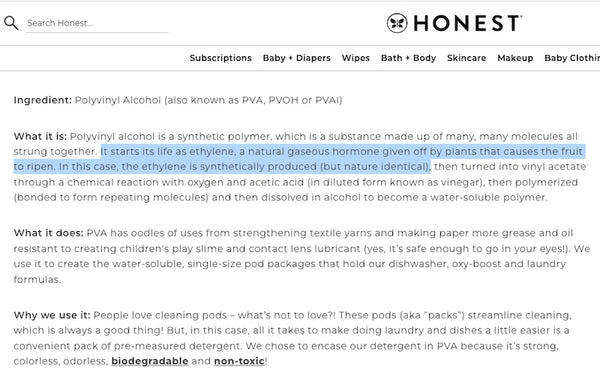
Does PVA biodegrade?
PVA is often marketed as a biodegradable polymer that can decompose into water and carbon dioxide. However, this claim is misleading as it depends on the conditions of degradation.
Studies show that the complete biodegradation of PVA requires the presence of extremely specific microorganisms and enzymes.
In addition to these microorganisms, it also requires a specific amount of time in the wastewater water treatment facility. In anaerobic conditions, such as landfills or sediments, PVA can persist for a long time without degrading.
What are the environmental impacts of PVA?
- PVA can accumulate in water and land ecosystems and affect the biodiversity and functioning of these systems.
- PVA dissolved in water releases acetic acid, which can lower the pH and harm aquatic life.
- PVA degraded very slowly in soil and compost, and that the degradation products could be toxic to microorganisms.
PVA is not hydrolyzed during the composting process; therefore, it does not offer any nutritional value to microorganisms, which is one of the markers for true biodegradability.
"PVA has low degradation rates within Waste Water Treatment Plants; thus, its hydrophilicity and massive production numbers make it a cause for concern as a pollutant in the natural environment. Very little research exists that aims to monitor the biodegradability of PVA in the natural environment. This presents a challenge in determining its role or impact as a pollutant. Research into truly eco-friendly substitutes for PVA is warranted and should be further explored. Improving upon this research is essential for better understanding the link between PVA usage, and public and environmental health." (4)
Is PVA a micro plastic?
Yes. Although it is not a classic tiny particle micro plastic, it is still plastic dispersed into water, with potential impacts on water quality and aquatic life.
What ingredients are concentrated onto the sheet?
Be aware also, that not all sheets are created equal. Dishwasher and laundry sheets may contain fragrance and other additives, such as betaine, coconut diethanolamide, fatty alcohol polyoxyethylene ether, glycerol, linseed oil, sodium citrate, sodium dodecyl sulfate, methyl ester sulfonic salt, sodium C14-16 olefin sulfonate, silica, edible starch, sodium acetate trihydrate, sodium bicarbonate, ethoxylated isotridecanol, and clay.
Most laundry sheets we researched contain palm-oil derived surfactants.
These ingredients may have varying degrees of environmental impact and toxicity depending on their source, concentration, and biodegradability.
So, are laundry and dishwasher sheets environmentally friendly?
Every choice we make is about weighing up the environmental consequences. There is no eco-friendly perfection.
But here's why I believe that PVA is not an environmentally-friendly material:
- Although PVA dissolves in water, it does not always biodegrade completely in wastewater treatment plants or in the environment. The fact it "disappears" into water, makes it particularly difficult to monitor the impacts.
- PVA can persist as micro plastics or liquid plastics that can harm aquatic life, soil quality, and human health.
- PVA also requires fossil fuels and energy to produce, contributing to greenhouse gas emissions and environmental injustice.
Relying on any form of fossil fuel is not going to solve the problem. At the heart of the term "sustainability" is the question of whether the activity can be sustained forever? And no, extracting finite fossil fuels can not be sustained, so the use of PVA ought not be called sustainable.
What do you prefer?
- Plastic that dissolves into water.
- Liquid in plastic bottles that have a chance to be recycled, or refilled.
- Powders, soap berries, and soap bars in compostable packaging.
At least with plastic bottles, it is obvious that it is plastic - there is no hiding it from consumers.
Laundry and dishwasher sheets may have their place as less impactful on the environment than some other plastics, but brands need to communicate the whole truth and supporting evidence with equal emphasis as the "eco" claims.
Recommended natural and plastic free laundry and dishwasher alternatives
Use natural or homemade laundry products that are free of synthetic chemicals and plastics, free from palm oil surfactants, and made close to home where you can. Powders that are not bulked out with unnecessary salt and other fillers, can be better than liquids that are mostly water.
Biome's new plastic free Laundry Liquid Concentrate Bar
When we published this expose in November 2023 we received hundreds of requests for a better solution. You wanted a product that would save shipping around heavy water, be from synthetic additives and palm oil, convenient, and that was truly plastic free.
So we put out minds to it and came up with the revolutionary Biome Laundry Liquid Concentrate Bar!
Other plastic free alternatives are:
See all our laundry products here
For those with front loading washing machines worried about using powder, simply dissolve it in water before you add to the washing machine.
For dishwashing, Kin Kin dishwasher powder (there is a thin plastic coating in the packaging which can not be recycled).
REFERENCES
1. https://www.plasticpollutioncoalition.org/blog/2022/11/18/pva-plastic-what-you-need-to-know
2. https://plasticoceans.org/detergent-pods-contributing-to-plastic-pollution/
3. Honest Company website https://www.honest.com/blog/wellness/ingredients/what-is-polyvinyl-alcohol/8777.html
5. ACCC Greenwashing guide https://www.accc.gov.au/consumers/advertising-and-promotions/environmental-and-sustainability-claims
https://www.ourendangeredworld.com/eco/is-polyvinyl-alcohol-bad-for-the-environment/
https://www.ncbi.nlm.nih.gov/pmc/articles/PMC8199957/
https://www.sourcegreen.co/materials/polyvinyl-alcohol-pva-pvoh/
MORE READING
5 ways to a plastic free laundry
Can you wash the dishes without plastic

